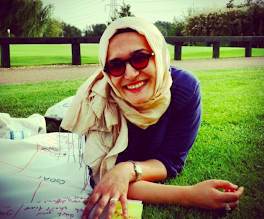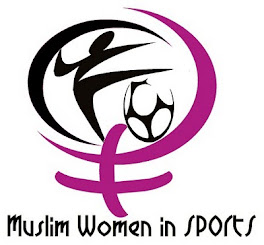If you haven’t heard of Ibtihaj Muhammad yet, you will if you watch much of the 2016 Summer Olympics in Rio.
The 2007 Duke graduate is about to become the first U.S. athlete to participate in the Olympics while wearing a hijab, the traditional covering for the hair and neck that is worn by Muslim women.
Muhammad, 30, is a Muslim fencer who is originally from New Jersey. When she was 13, she and her parents picked fencing as a sport she could try. They were searching for a sport Muhammad could play while being fully covered so she could adhere to the tenets of her faith.
The saber is Muhammad’s fencing weapon of choice. While she is a long shot to win a medal in Rio, it’s not impossible. There is also a possibility she could be chosen as the U.S. flag bearer in either the opening or closing ceremonies.
Muhammad has met with President Obama to talk about Muslim issues in the U.S. community. She also has a clothing line, calledLouella, that aims to bring modest fashionable clothing to the United States market. I caught up with Muhammad in a pre-Olympic interview session not long ago with several other reporters for this Q&A.
Q: What was your experience at Duke like?
A: It was interesting. I always say it was the best four years of my life. I was recruited there for fencing, but I was on an academic scholarship. I double-majored in international relations and African Studies and minored in Arabic. I went to basketball games while I was there. I had a great time.
Q: You have a lot of opportunities as these Olympics approach. What are you most excited about?
A: I’m excited to provide a different image of what people are used to seeing from a Muslim woman. I don’t want to see the same image every time of Muslim women on TV – it’s not representative of the Muslim women that I know living in the States.
What I see is very narrow. It may be a woman in all black, or a woman in a burka (the loose garment covering the whole body from head to feet, worn in public by many Muslim women).
As Muslims, we have conservatives and we have liberals and everyone in between. You can’t paint us all with one broad stroke. That can be frustrating.
Q: There is a lot of anti-Muslim rhetoric these days, and you have mentioned that you have heard some of it. What is your reaction to that?
A: My family has always been here. I’m American by birth. This is part of who I am and it is all that I know. So when I hear someone say something like, ‘We’re going to send Muslims back to their countries,’ then I’m like: ‘Where am I going to go? I’m American.’
Q: Some athletes would rather not wade into political and cultural waters and just focus on their sport. Why do you go there?
A: If someone chooses not to support me because I am going to speak out against hate and bigotry, then my relationship with them was never meant to be. I feel like I owe it to anyone is struggling in this country because of their skin color or their race, I owe it to them to speak out in this moment. It is very difficult right now. It’s a very stiff environment that we are living in. So I want to challenge these thoughts and this rhetoric that we are hearing.
I do have moments like, ‘Oh, not today.’ Sometimes I want to just be an athlete, just focus on training. But when I think about my own safety, or the safety of my mother and sisters, my family and friends, I feel like I have to speak out. I have to challenge this idea that in some way that we don’t belong because of our race or religion.
Q: Do you retain your Duke loyalty?
A: Yes, I do. Did you go to Carolina by any chance?
Q: Yes, I did.
A: Well, we all make mistakes.
Scott Fowler: sfowler@charlotteobserver.com,@scott_fowler




